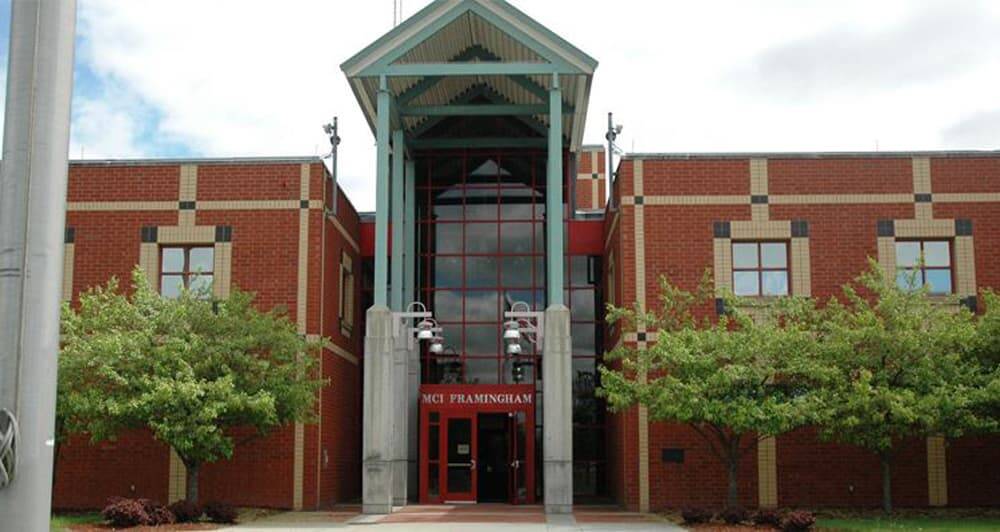Advertisement
Inmates, advocates and lawmakers renew push for a prison moratorium

There's a "groundswell" on Beacon Hill to implement a five-year jail and prison construction moratorium, Sen. Jo Comerford said at a committee hearing Tuesday. More than 20 inmates testified virtually from MCI-Framingham on her bill, detailing a lack of health care, education, skill-building, domestic violence counseling, and other programming available to them.
A new prison that could cost Massachusetts more than $50 million is unnecessary, the inmates said, as they insisted MCI-Framingham is a functional facility that doesn't need to be replaced despite claims of overcrowding and understaffing. State money should instead be directed to support rehabilitation and reentry resources, said the inmates — including some of whom are seeking clemency or retrials.
"Incarceration is inherently traumatic," Comerford said. "Residents of the commonwealth need and deserve community-based services and opportunities, alternatives, after-incarceration support, medical parole — that is what is called for."
Comerford said her proposal heeds the science of pursuing alternatives to incarceration and tackling the root causes of incarceration, such as lack of access to public education, affordable housing, mental health, job employment opportunities and transportation.
Former Gov. Charlie Baker struck a moratorium plan from a nearly $5.2 billion general bond bill in late July, and Democrats left themselves no time under their rules to try and overturn his veto. Comerford called Baker's decision "very misguided."
Comerford told the State House News Service she's not worried about a veto from Gov. Maura Healey should a moratorium proposal be sent to her desk.
"Governor Healey supports efforts to stop new construction of prison infrastructure provided it does not preclude the state from making critical renovations to maintain safe, modern facilities and attain quality programming and services," Karissa Hand, a Healey spokesperson, said in a statement.
Comerford's bill this session does not preclude repairs, though it would block state agencies from studying, planning, designing, acquiring, leasing, searching for sites or building new facilities. The bill also prohibits the expansion of existing correctional facilities or detention centers, converting spaces for the purpose of detention or incarceration, or renovating spaces that go beyond maintenance needed to comply with building code requirements.
Rep. Chynah Tyler filed a companion prison moratorium bill in the House. Six months into the new session, it's awaiting a hearing before the Joint Committee on the Judiciary.
Advertisement
The Baker administration had investigated constructing a new women's prison in Norfolk, and advocates say they want clarity from the Healey administration on the latest plans to potentially replace MCI-Framingham.
Healey's recently released five-year capital spending contains a bonding cap of $51.55 million from fiscal year 2024 to fiscal year 2028 "to support the final phases of the MCI-Framingham planning process."
That includes $750,000 in fiscal year 2024, though officials are still evaluating the best path for the facility moving forward, a spokesperson for the Healey administration said Tuesday. Planning in fiscal year 2024 will help the administration pinpoint next steps and costs.
Comerford said capital investment plans are broad and don't articulate exact policy plans.
"That's why I think today's hearing is so important because the governor is considering the way forward, from my understanding," Comerford told the News Service.
Mallory Hanora, executive director of the advocacy group Families for Justice as Healing, told the News Service before the hearing: "What we know is that members of the executive branch from EOPSS, the Department of Correction and the Division of Capital Asset Management and Maintenance have been having biweekly meetings since 2022 with HDR, the architecture firm that was hired to study and design the new women's prison, but we don't know the status of those meetings."
Families for Justice as Healing and The National Council for Incarcerated Women and Formerly Incarcerated Women and Girls had filed a public records request for meeting minutes, though the groups in May said they received heavily redacted documents.
The two organizations held a rally outside the State House Tuesday morning, as advocates more broadly called on the state for its plan to decarcerate MCI-Framingham. There are about 200 inmates at the facility, compared to past levels reaching 700 or 800, inmates and advocates testified.
The number of people incarcerated under DOC dropped by 45% between 2013 and 2022 — or from 11,403 individuals to 6,236, according to a DOC report from May 2022. Officials say the decline reflects successful reentry efforts, lower recidivism rates, and criminal justice reform in 2018.
"Instead of worrying about stashing the pockets of a construction company, invest the money that we need dearly at Framingham," inmate Jessica Deane testified, requesting program funding to help domestic violence survivors "heal in a meaningful way to be positive and successful returning citizens."
Melissa Cordle, who's been incarcerated for the last 38 years, told lawmakers that constructing a new prison would only transfer and perpetuate the issues at MCI-Framingham. Cordle, 73, advocated for alternatives like relief for elderly inmates who pose a low threat to society.
Champree Dikins, another inmate, testified that $50 million can be used to "open doors to women to have successful reentry" rather than by what she described as destroying people's hopes and dreams through incarceration.
Successful passage of the prison moratorium would provide officials with a "pause" to examine strategies to reduce the state's prison and jail footprint, Comerford said. That rethink cannot happen, Comerford told the News Service, if policymakers are always grapping with the "ghost or specter of a new prison hanging over us or prison expansion."
"For the fiscal conservatives in our midst, it's also cheaper," Comerford told the News Service. "Besides being morally better, ethically better, it's more effective ... It's also just actually the way Massachusetts should be."